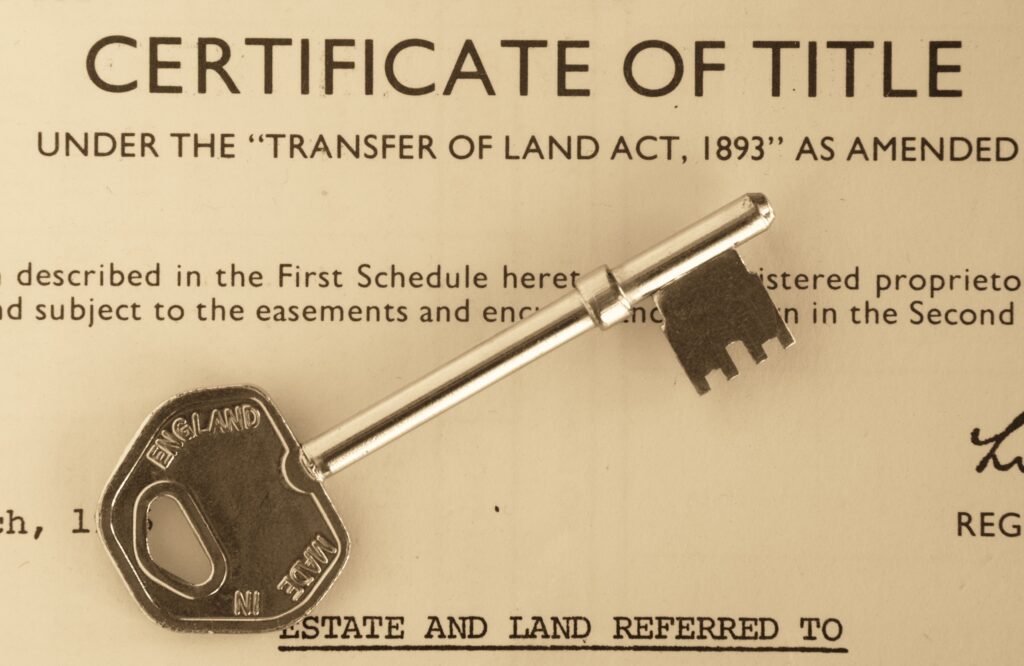You have all heard the relentless ads for Home Title Theft Insurance. But is your home really at risk of being stolen right from under you? Home title theft, a term that has gained traction through numerous ads, suggests that fraudsters can easily swipe your home’s title, leaving you homeless and financially ruined. However, a closer look reveals that home title theft, while possible, is exceedingly rare. This article aims to shed light on the reality behind the scare tactics employed by some home title insurance companies, guiding you through the facts to make an informed decision about protecting your property.

Understanding Home Title Theft:
Home title theft, a form of property fraud, involves criminals manipulating property records to claim ownership of another person’s property. Let’s delve deeper into how this theft occurs, with a particular focus on the role of quitclaim deeds in the process.
1. Identifying a Target: The initial step for a fraudster is to select a vulnerable property. This often includes homes with substantial equity, properties that are fully paid off, or those that appear vacant. Properties owned by elderly individuals or those in financial distress are also prime targets due to perceived lower levels of vigilance.
2. Collecting Personal Information: With a target in mind, the thief gathers personal information about the homeowner. This can range from basic details available in public records to more sensitive data that can be acquired through phishing attacks, data breaches, or social engineering tactics. The goal is to collect enough information to convincingly impersonate the homeowner in legal documents.
3. Crafting a Forged Document: Armed with the homeowner’s details, the criminal proceeds to forge a document that will transfer ownership of the property. Here, a quitclaim deed is often misused due to its simplicity and the minimal guarantees it requires. A quitclaim deed transfers the owner’s interest in the property to another party without stating that the property is owned free and clear of other claims. Its simplicity and the lack of warranty make it an attractive tool for fraudsters looking to create a semblance of a legitimate transfer.
4. Filing the Forged Quitclaim Deed: The pivotal moment in home title theft is when the forged quitclaim deed is filed with the county recorder’s office. If the fraudster manages to file this document without raising suspicion, the official records could be altered to show the thief as the new “owner” of the property. This step requires the document to appear legitimate enough to pass initial scrutiny.
5. Exploiting the Fraudulent Transfer: Once the quitclaim deed is recorded, the thief has several avenues to exploit the stolen property title. They might attempt to sell the property to an unsuspecting buyer, secure loans against the property’s equity, or even occupy or rent out the property illegally. The true owner might remain unaware until they encounter legal or financial anomalies related to their property.
The Home Title Insurance Industry:
The industry surrounding home title insurance has grown significantly, with companies offering to protect your home from title theft. These services often come with aggressive marketing campaigns, painting a picture of a common and devastating threat. Yet, the reality is that the actual risk of home title theft is low, and the coverage offered by these policies may not be as comprehensive as advertised.
The Real Risks of Home Title Theft:
While the specter of home title theft looms large in advertisements and media, it’s essential to dissect the actual risk it poses to homeowners.
Incidence Rate:
First and foremost, the incidence of home title theft remains extremely low compared to other forms of identity theft or property fraud. The complexity of successfully executing such a theft, combined with the legal safeguards in place, makes it a less common occurrence. However, this does not entirely negate its existence or the potential impact on affected individuals.
The Misleading Nature of Home Title Insurance Ads:
Advertisements for home title insurance often paint a dire picture, suggesting that without their services, homeowners are left vulnerable to the devastating effects of home title theft. However, this portrayal can be misleading, as it overlooks the robust protections already in place for homeowners. Understanding these safeguards can help demystify the real value of additional title insurance and highlight the resilience of the existing system against title fraud.
1. Public Records and Transparency: The public nature of property records serves as a fundamental protection. These records provide a transparent history of property ownership and transactions, making it difficult for fraudsters to forge ownership without detection. Homeowners and potential buyers can access these records, allowing for verification of property titles before any transaction.
2. Standard Title Insurance: When purchasing a property, buyers are typically required to obtain title insurance as part of the mortgage process. This insurance protects against past defects in the title, such as undisclosed liens, disputes over property boundaries, or issues arising from previous ownership. While standard title insurance doesn’t cover future fraud, it ensures that the property’s title is clear at the time of purchase, providing a strong foundation of security.
3. Legal and Notary Requirements: The process of transferring property titles involves legal documentation and notarization, where a notary public verifies the identity of the signing parties. This step adds a layer of security, as it requires physical proof of identity, making it harder for fraudsters to impersonate the property owner successfully.
4. Mortgage Lenders’ Vigilance: Mortgage lenders have a vested interest in ensuring the integrity of property titles. Before approving a loan, lenders conduct thorough background checks, including a title search to confirm the property’s legal ownership. This diligence helps catch any irregularities or attempts at fraud before a mortgage is issued.
5. Fraud Monitoring Services: Various services and tools are available to homeowners outside of home title insurance that monitor for identity theft, fraud, and unauthorized changes to property records. These services can alert homeowners to potential issues, allowing them to take action before significant harm occurs.
6. Legal Recourse: In the event of title fraud, homeowners have legal recourse to reclaim their property and rectify the situation. The legal system provides mechanisms for challenging fraudulent transactions and restoring rightful ownership, although this process can be time-consuming and may require legal assistance.
How to Protect Yourself Without Falling for Scams:
Protecting your home from title theft doesn’t require expensive insurance policies. Simple steps like regularly checking your property records, securing your personal information, and being aware of the signs of identity theft can offer substantial protection. For most homeowners, these measures, coupled with the existing safeguards within the real estate system, provide adequate defense against the unlikely event of title theft.
Making an Informed Decision:
Before jumping to purchase home title insurance, consider the actual risks and the protections already in place. Research, ask questions, and consult with real estate professionals to understand the necessity of additional insurance. Often, being informed and vigilant is the best defense against the rare possibility of home title theft.
Final Thoughts:
Home title theft, while a potential concern, is not the widespread threat that some advertisements would have you believe. The industry’s scare tactics can lead homeowners to purchase unnecessary insurance policies. By staying informed and taking practical steps to protect your personal information and property records, you can safeguard your home without succumbing to the fear-mongering of home title insurance ads.

